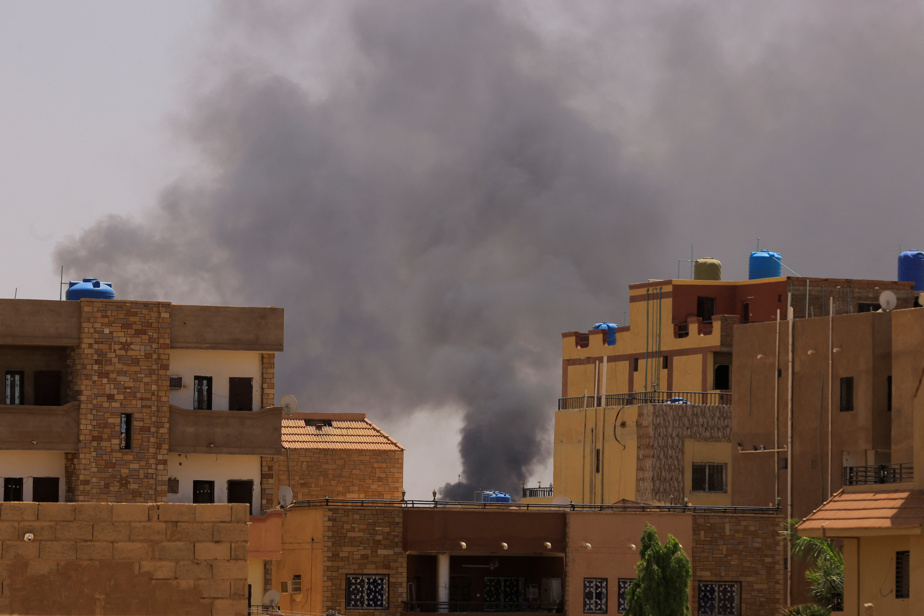(Khartoum) Fighting between soldiers and paramilitaries in Sudan which left hundreds dead and thousands injured entered its second week on Saturday without any ceasefire holding despite multiple calls for this ‘foreign.
After a relatively calm night in the capital Khartoum largely deprived of electricity and running water, loud explosions shook the city in the morning and firefights were heard in different neighborhoods, according to testimonies reported to the AFP.
Violence erupted on April 15 between the army of General Abdel Fattah al-Burhane, de facto ruler of Sudan since the 2021 putsch, and his deputy turned rival, General Mohamed Hamdane Daglo, who commands the Rapid Support Forces ( FSR), feared paramilitaries.
On Friday, the military announced it had “agreed to a three-day ceasefire” for Eid al-Fitr, which marks the end of the holy month of Muslim fasting. Previously, UN Secretary General Antonio Guterres and US Secretary of State Antony Blinken called for a ceasefire.
But again, the army and the FSR and the army have not respected their commitments to pause to allow civilians to flee and foreign countries to repatriate their nationals. The still very provisional toll stands at 413 dead and 3,551 injured, according to the World Health Organization (WHO).
Since Friday, however, evacuation plans have accelerated: the United States, South Korea and Japan have deployed forces in neighboring countries, and the European Union is considering taking similar measures.
The Sudanese army announced “evacuation operations in the next few hours”. “The United States, the United Kingdom, France and China will evacuate their diplomats and nationals with their military aircraft,” she said.
“Saudi diplomats have already left overland to Port Sudan” on the coast before flying to Saudi Arabia, and Jordanian diplomats will then take the same route, according to the army.
For their part, General Daglo’s FSRs indicated that they were “ready to open all airports in Sudan” for these evacuations. But no one knows in whose hands and in what state are the airports and air bases in Sudan, the scene of heavy fighting since the first day of the conflict.
The two generals who took power in the 2021 coup are now engaged in a merciless struggle. They were unable to agree on the integration of General Daglo’s paramilitaries into General Burhane’s regular troops, after weeks of political negotiations under international auspices.
As a result, the army brought out its fighter jets to strike RSF bases in residential areas of Khartoum. General Daglo sent columns of armored vehicles and thousands of FSR fighters to the capital, most of them former Arab militiamen recruited by the former dictator Omar el-Bashir, ousted in 2019, to fight ethnic minorities. in Darfur (west).
In Khartoum, a city of five million people, many civilians have ventured outside just to get emergency food or to flee the city. The end of the fasting month of Ramadan is usually celebrated ‘with pastries and gifts for the children’, but this year it’s ‘gunshots and the smell of death’, laments AFP Sami al-Nour, a resident of Khartoum.
Living conditions are probably even worse in Darfur, where no one can go immediately. On site, a doctor from Médecins sans frontières (MSF) evokes a “catastrophic situation”.
In Sudan, Africa’s third-largest gold producer yet one of the world’s poorest countries, health services have been on their knees for decades and a third of the 45 million people go hungry.
The cessation of operations by most aid workers, after at least four of them have been killed for a week, will worsen the situation. And the conflict now threatens to gain ground beyond Sudan’s borders, experts say.
Now that the guns have spoken, action must be taken quickly to avoid a “full-fledged civil war”, warns the International Crisis Group (IGC).

